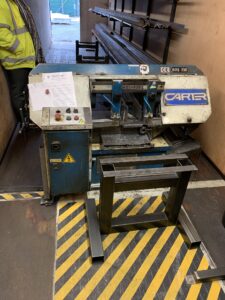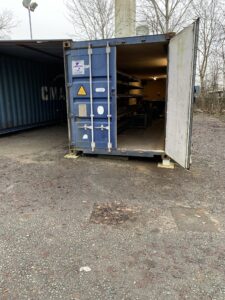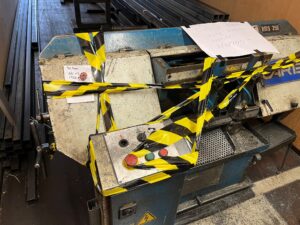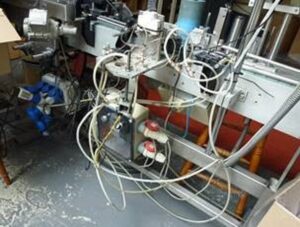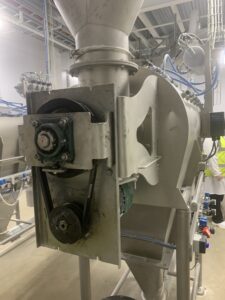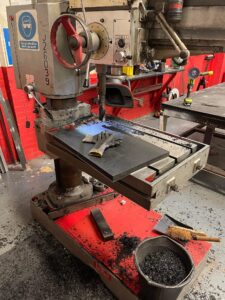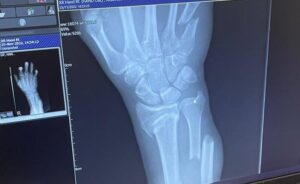Fine for council after man ‘who loved life’ killed by falling tree
Cheshire East Council (the council) has been fined £500,000 after ‘the most amazing man’ was killed by a falling tree.
Christopher Hall, 48, from Wilmslow, was walking his dog in The Carrs – one of the town’s parks – on 28 August 2020, when the large limb of a tree fell and struck him. He received multiple injuries and sadly died at the scene.
Less than a year before, another large limb from the same tree had fallen off but the incident was never investigated by the council or its ground maintenance company Ansa Environmental Services Limited. As the District Judge sentenced both at Chester Magistrates Court on 8 November 2024 he said that the previous incident should have “acted as a wake-up call”.

In a victim personal statement, Chris’s wife Fiona said her husband “loved life and life loved him”.
“Seeing his face, you will get a sense of who Chris was, what he meant to those around him and what we have lost,” she said.
“His image serves not only as a tribute to the most amazing man but also a focal point and brutal reminder of why seeking justice matters so very deeply.
“Chris loved life and life loved him.
“His death was utterly senseless and wholly avoidable.
“He was simply walking our dog on a dry, warm, summer’s day.
“His loss is colossal, his absence is immense and he leaves a void that can never be filled.”
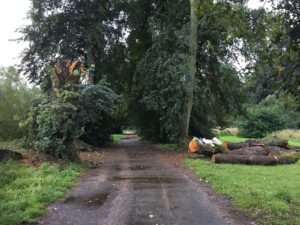
An investigation by the Health and Safety Executive (HSE) found that when same tree had shed another large limb in September 2019, no investigation was carried out by those responsible to assess whether the tree posed a future safety risk. The council, who controlled the park, did not have a formal overarching tree strategy to manage the risks from trees in public places, and their grounds services contractor, Ansa Environmental Services Limited, had no robust tree management policy.
Organisations who are responsible for trees in areas regularly used by members of the public often adopt a concept called “zoning”, where trees are prioritised for proactive checks based on frequency of public access. HSE guidance is available here.

In his own statement, Chris’s son Sam spoke about the impact his dad’s death has had on his life.
“For the past four years, it’s felt like a long, painful trail – a path we never wanted to be on,” he said.
“Losing dad was losing my life and strength. I miss every little piece of him – his laughter, wisdom, and adventures we shared.
“Our travels ignited a passion in me, but now every journey feels bittersweet without him.
“I’ve taken up diving, which was one of his dreams for us. Being underwater helps me connect with him.”
Cheshire East Council pleaded guilty to breaching Section 3(1) of the Health and Safety at Work Act 1974. They were fined £500,000 and ordered to pay £7,284 costs at a hearing at Chester Magistrates Court on 8 November 2024.
There was no separate penalty for Ansa Environmental Services Limited of Middlewich, Cheshire, who also pleaded guilty to breaching 3(1) of the Health and Safety at Work Act 1974. They were ordered to pay a nominal fine of £5. In passing his sentence, the District Judge said it would have been disproportionate to impose fines on both.
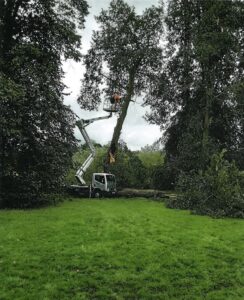
HSE inspector Lorna Sherlock said: “This was an utterly tragic event that has caused the death of a much-loved husband and father.
“Had this public area been better managed, this death might have been avoided. No lessons were learned from the limb falling off the tree less than a year before.
“Cheshire East Council had not adopted a formal overarching tree strategy to manage the risks from trees in public places since it was formed in 2009.
“There was no overarching, consistent risk identification process leading to zoning of trees in all frequently accessed public areas.
“Fiona and the family have shown great courage and fortitude throughout their ordeal.”
The prosecution was brought by HSE enforcement lawyer Matthew Reynolds and paralegal officer Gabrielle O’Sullivan.
Notes to editors:
- The Health and Safety Executive (HSE) is Britain’s national regulator for workplace health and safety. We are dedicated to protecting people and places, and helping everyone lead safer and healthier lives.
- More information about the legislation referred to in this case is available.
- Further details on the latest HSE news releases is available.
- HSE does not pass sentences, set guidelines or collect any fines imposed. Relevant sentencing guidelines must be followed unless the court is satisfied that it would be contrary to the interests of justice to do so. The sentencing guidelines for health and safety offences in England and Wales can be found here and for those in Scotland here.
- Guidance on managing the risk posed by trees is available.
